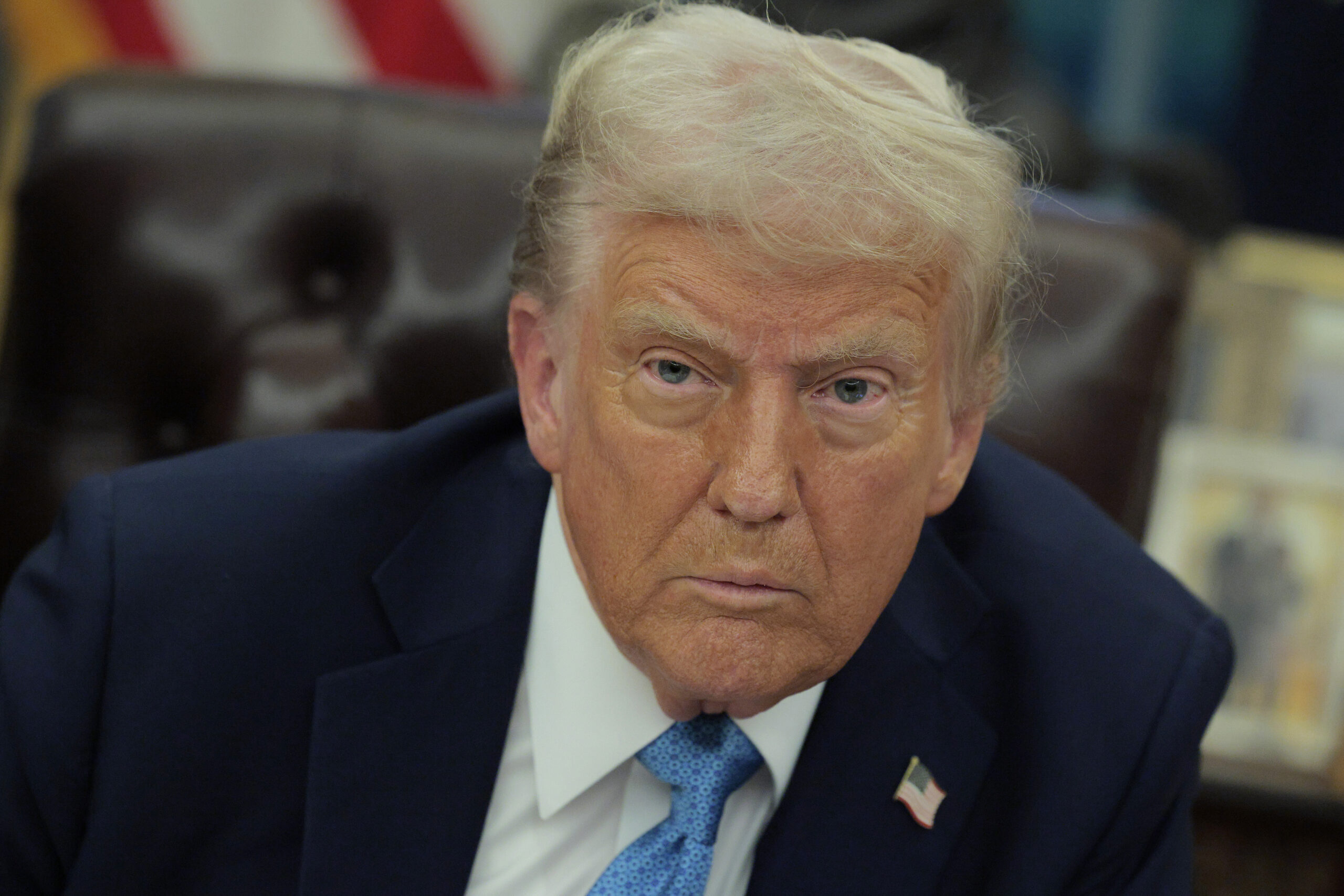- February 10, 2025
Trump’s tariffs on neighbors will backfire, fueling migration, fentanyl flow

Andres Oppenheimer
President Trump is touting his threat to impose 25% tariffs on Mexican and Canadian goods and 10% on China’s products as a big victory in his stated goal to stop the flow of undocumented migrants and fentanyl trafficking. But his actions will have the exact opposite effect.
Trump’s mere threat of imposing steep tariffs will bring investments in Mexico to a halt, cripple Mexico’s economy, drive up unemployment and push many more Mexicans to cross the U.S. border or join the ranks of drug trafficking gangs.
Don’t kid yourself: The damage is already done, despite the fact that Trump postponed for 30 days the implementation of his tariffs on Mexico and Canada. The mere possibility that Trump may impose the tariffs will significantly slow down investments in Mexico, and increase poverty south of the border.
Will there be many foreign multinationals willing to build factories in Mexico, now that the same U.S. president who re-negotiated and signed the 2020 U.S.-Mexico-Canada free trade agreement has threatened to effectively nix it? Even if Trump postpones tariffs after the 30-day grace period, what will stop him from reinstating them anytime over the next four years, investors will wonder.
“Trump has shown that he can change the rules of the game at any moment, for any reason,” says Marcelo Giugale, a former World Bank official who teaches international economics at Georgetown University. ”Right now, it would be impossible to convince the board of directors of a multinational company to invest in a supply chain factory in Mexico.”
More than 83% of all Mexican exports go to the United States, which accounts for a sizable chunk of Mexico’s annual income.
Making things worse, Trump’s threat will drive up prices of imported goods and increase inflation in the United States, and push many traditional U.S. trading partners into the arms of China.
“The only real winner in all of this is China,” Georgetown University’s Giugale told me. “There will be a greater incentive for countries to diversify their trading and geo-strategic partners.”
Trump is celebrating as a big victory the fact that, facing imminent U.S. tariffs, Mexican President Claudia Sheinbaum agreed to send an additional 10,000 troops to the border, and Canada’s prime minister, Justin Trudeau, agreed to launch a joint strike force to combat organized crime and fentanyl smuggling.
White House press secretary Karoline Leavitt bragged, “Canada is bending the knee, just like Mexico.”
But Mexico had already sent additional troops to the border in the past, and many of Trudeau’s promises to Trump were measures that Canada was already carrying out under an ongoing $1.3 billion border plan. It’s an open question whether Trump won a big victory, or whether he was duped.
The fact is that fentanyl smuggling — which is a serious issue — can only be reduced by fighting both the supply and demand for the drug. Trump’s strategy ignores this.
His one-dimensional “blame-the-foreigners” demagoguery doesn’t even mention the need to reduce U.S. drug consumption with better prevention and treatment programs, and fighting drug distribution and money laundering.
Ninety-nine percent of fentanyl consumers in the United States and 86% of convicted fentanyl smugglers are U.S. citizens, according to a 2022 study by the right-leaning Cato Institute. “Fentanyl is smuggled for U.S. citizens, by U.S. citizens, not asylum seekers,” the study said.
To its credit, the Wall Street Journal’s editorial board has called Trump’ tariffs offensive “the dumbest trade war in history.”
Indeed, Trump’s tariffs will not only drive up prices of imported cars and other consumer goods in America, but will, among other things, badly hurt Mexico’s economy and increase illegal migration and fentanyl smuggling. It’s a dumb policy, which — if implemented — will result in exactly the opposite of what Trump says he wants to accomplish.

